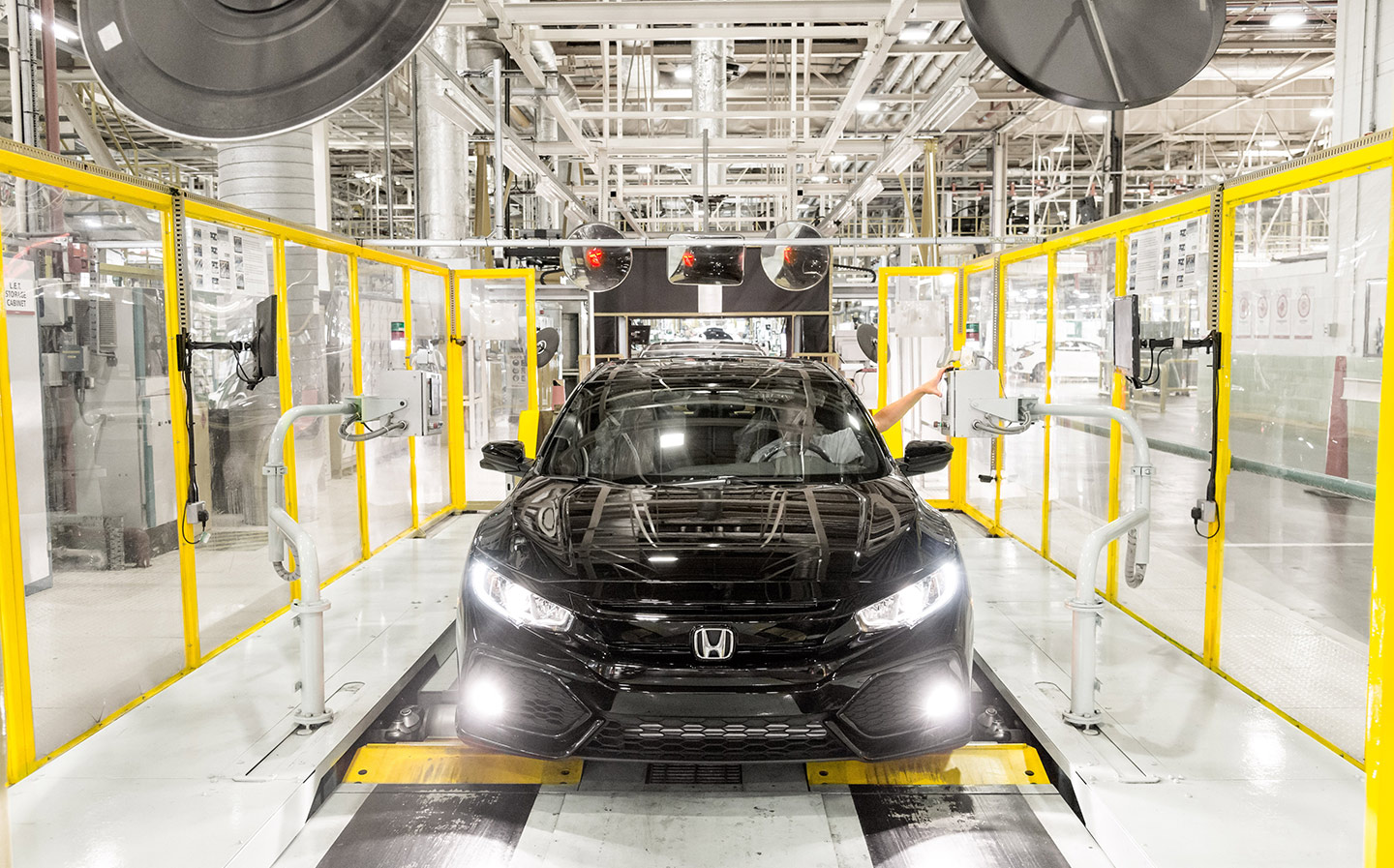It wasn't Brexit, Honda says, as Swindon factory closure confirmed
Retooling for electrification makes more sense in China, America
HONDA has said that Brexit is not the reason for its proposed decision to close its factory in Swindon.
The Japanese car maker this morning confirmed that a consultation period has begun with a view to closing the plant, which produces the Civic model alongside petrol and diesel engines, in 2021, putting 3,500 Honda jobs and a further 10,000 jobs in the supply chain at risk.
Speculation yesterday suggested continuing uncertainty over Brexit, with possible tariffs when exporting to Europe in a no-deal scenario, could be a factor in any decision to close the factory. A recent free-trade agreement between Japan and Europe gave credence to the idea, as Honda could switch manufacturing to Japan and import its cars to Europe tariff-free.
It follows a number of car makers citing uncertainty over Brexit as one of several factors — including a drop in demand for diesel cars — in decisions to cut back manufacturing in the UK. Nissan has cancelled plans to build the next-generation X-Trail at its Sunderland factory while Jaguar Land Rover is culling 4,500 jobs, on top of 1,500 job losses announced in 2018, as it moves production from the UK to Slovakia.
Earlier this year, the Society of Manufacturers and Traders (SMMT) said the UK car industry was on “red alert” due to the risk of crashing out of the EU without a trade deal.
“Brexit uncertainty has already done enormous damage to output, investment and jobs, said Mikes Hawes, SMMT chief executive. “Yet this is nothing compared with the permanent devastation caused by severing our frictionless trade links overnight, not just with the EU but with the many other global markets with which we currently trade freely.”
However, Honda’s official statement, released this morning, makes no mention of Britain’s withdrawal from Europe. Instead it says the switch to electrified cars (including pure-electric, plug-in hybrid and “self-charging” hybrids), in response to “unprecedented changes in the global automotive industry” are behind the move.
A spokesperson told driving.co.uk that retooling the Swindon plant to accommodate electric cars makes less business sense than updating its plants aimed at the Asian and American markets.
In 2017, Honda’s plant in China produced 1.4m cars while American Honda built 1.6m cars, compared with 166,228 in the UK and 29,745 at its only other European plant in Turkey, which is also set to close.
The statement read: “The significant challenges of electrification will see Honda revise its global manufacturing operations, and focus activity in regions where it expects to have high production volumes.
“Under this proposed restructure, HUM’s current role as a global manufacturing hub may no longer be viable.”
Honda said that consultation activity will begin today, and that the company will be working closely with its workforce, including the recognised trade union, Unite the Union, over the months ahead.
Katsushi Inoue, Chief Officer for European Regional Operations, Honda Motor Co., Ltd., and President, Honda Motor Europe said: “In light of the unprecedented changes that are affecting our industry, it is vital that we accelerate our electrification strategy and restructure our global operations accordingly.
“As a result, we have had to take this difficult decision to consult our workforce on how we might prepare our manufacturing network for the future. This has not been taken lightly and we deeply regret how unsettling today’s announcement will be for our people.”
HUM Director, Jason Smith, said: “We understand the impact this proposal will have on our associates, wider supplier base and the local community. We are committed to supporting associates to help them through this difficult time.”
The SMMT said today’s announcement is a huge blow to UK car making and again called on the government to withdraw a no-deal Brexit from the table, and bring a swift end to the current economic uncertainty.
“The global automotive industry is facing fundamental changes: technological, commercial and environmental, as well as escalating trade tensions, and all manufacturers are facing difficult decisions,” said Hawes.
“The UK should be at the forefront of these changes, championing its competitiveness and innovation rather than having to focus resources on the need to avoid a catastrophic ‘no-deal’ Brexit.”
Honda UK manufacturing timeline
1985 HUM established
1986 HUM begins operations
1989 Engine plant is opened and begins production
1991 Construction of Car Plant 1 begins
1992 Car Plant 1 opens and production of Honda Accord begins
1994 Production of Honda Civic begins
2000 Production of Honda CR-V begins
2001 Car Plant 2 opens and production capacity increases to 250,000 cars per year
2001 Production of Civic Type R begins
2002 HUM exports cars to North America for first time
2003 HUM produces one millionth car
2008 HUM produces two millionth car
2014 HUM opens first public access hydrogen filling station
2015 HUM announced as the global production hub for 10th generation Civic Hatchback
2016 HUM celebrates 30th anniversary
2016 Production of the 10th generation Civic Hatchback begins
2018 Production of CR-V ends
2019 Honda announces proposed closure of HUM
2021 Proposed closure of HUM
SMMT: Brexit uncertainty has done ‘enormous damage’ to UK car industry





